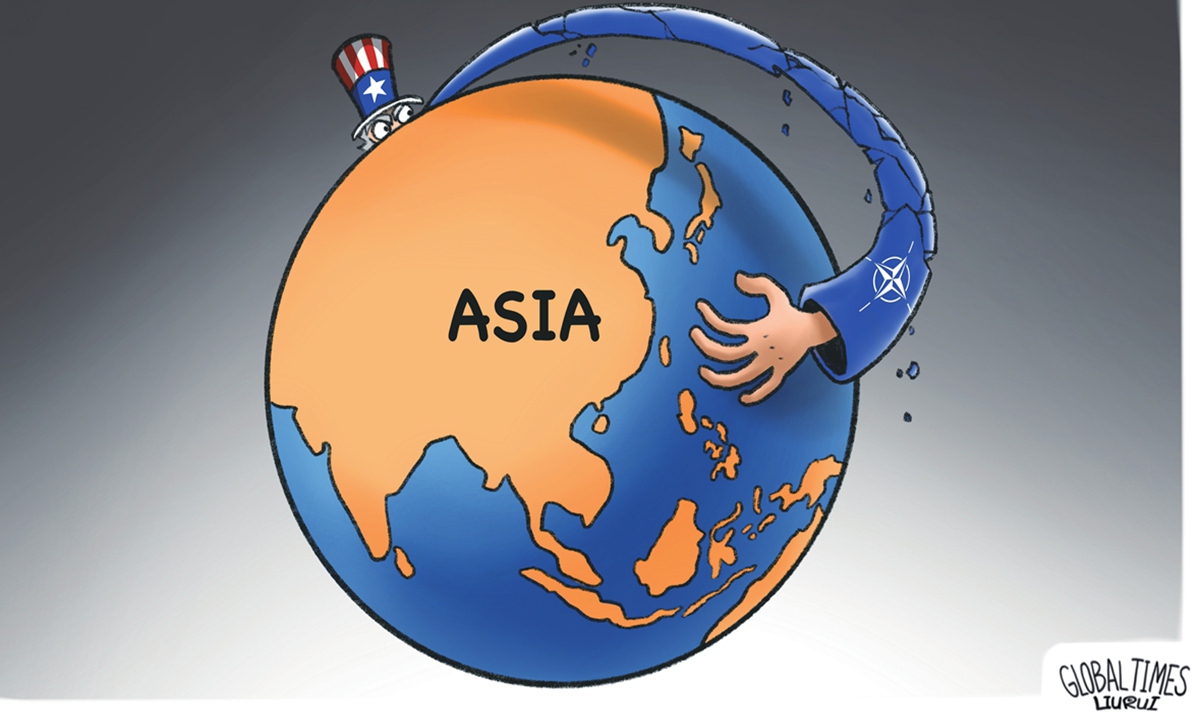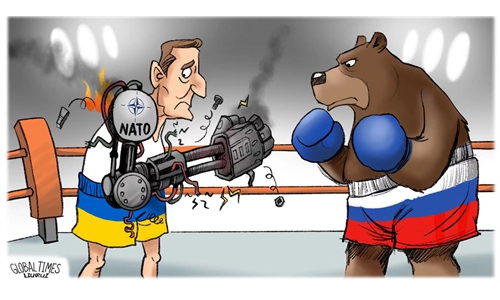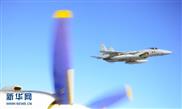US, Japan’s move to establish Asia-Pacific version of NATO disrupts peace and stability

Illustration: Liu Rui/GT
According to Japanese media reports, Japan plans to hold joint military exercises with NATO countries of Germany, France and Spain in July near the Russian border.
This military activity has been strongly protested by Russia. Russia's Foreign Ministry, in a note on its website, said Tokyo was told it was "categorically unacceptable" to engage in military activity off Russia's far eastern coast, particularly taking into account the participation of NATO members located far from the region.
Lü Chao, a research fellow at the Liaoning Academy of Social Sciences, told the Global Times that Russia's strong protest was expected. Considering the instability in Northeast Asia due to the US' Indo-Pacific strategy and NATO countries' rushing to the region, this joint military exercise should be highly vigilant.
Japan's plan of joint military exercise with NATO member countries was clearly orchestrated by the US. This move by Japan is the latest action to promote the "Asia-Pacific version of NATO." Wei Dongxu, a Beijing-based military expert and media commentator, stated that the US mobilizing NATO member countries to conduct joint military exercises in the Asia-Pacific region poses a threat to regional peace and stability. The US is integrating resources from its global allies to concentrate more offensive combat forces. Not only will Japan collaborate with these actions by the US, but many NATO member countries will also cooperate by deploying more fighter jets and other air forces. This exercise aims to integrate more NATO military forces in the region and merge them with the military forces of the US and Japan to demonstrate joint air combat capabilities.
An article in The Diplomat argues that despite Japan stressed that these joint exercises are not targeted at any particular country or region, the drills, conducted under the slogan "Free and Open Indo-Pacific," are apparently a sign of Tokyo's intention to use them as a deterrent to counter a more "assertive China.''
This view represents a mainstream idea in the US: treating China as America's biggest competitor. In order to contain China, the US creates utilitarian and exclusive small circles, attempting to integrate these small circles into an "Asia-Pacific version of NATO" large circle to maintain the hegemonic position led by the US. The US promotes the so-called great power competition, which requires Japan's support. Japan also willingly plays the role of executor of the US' Indo-Pacific strategy.
In recent years, the relationship between Japan and NATO has been getting stronger. Japan relies on the US' coaxing and tacit approval, continuously breaking through the peace Constitution, attempting to become a true "political power" and "military power." Japan frequently interacts with NATO countries, staging military joint exercises, forming "small circles" with the US to draw in regional and even external players, and trying to play the role of "second-in-command" in the US' Indo-Pacific ally system. Since the Ukraine crisis, Japan has strengthened its strategic ties with the Western camp in terms of ideology, aiming to break free from the constraints of the "postwar system" to expand Japan's influence.
In order to maintain its position as the world's "hegemon," the US is happy to turn Japan into a "bridgehead" and "tool" for intervening in regional affairs, indulging Japan's ambitions without seeing the risks it may bring. Lü believes that Japan's military buildup has far exceeded its self-defense needs, and since Japan's defeat in the World War II, Japan has not truly reflected on its war crimes, still harboring the old dream of revisiting East Asian hegemony, which is itself an unstable factor in the region. Once an "Asia-Pacific version of NATO" is formed, it will intensify regional camp confrontations.
Japanese Prime Minister Fumio Kishida is set to attend the NATO summit in Washington later this month, marking his third consecutive year attending the summit. Lü believes that further collusion between the US and Japan has a very dangerous tendency, and countries in the Asia-Pacific region need to remain highly vigilant. Regardless of how the US and its allies try to disguise their military activities in the Asia-Pacific region, they cannot hide their intentions to disrupt the current peace and stability in the region in order to profit from it.



